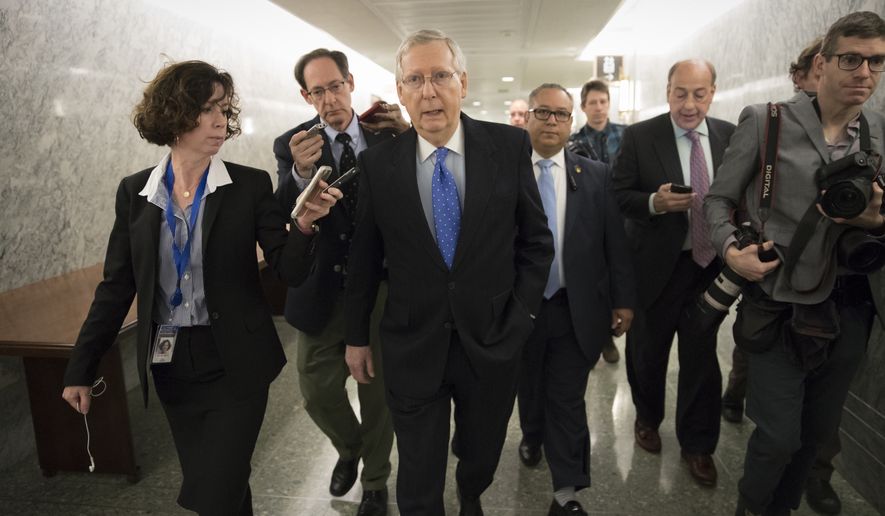The Senate GOP’s tax-cut plan would result in modest economic growth in the coming decade that would shave about $400 billion off its $1.4 trillion price tag, according to a report from congressional scorekeepers released Thursday.
The proposal would boost economic growth by about 0.8 percent on average over 10 years, but the positive budgetary effects would be partially offset by higher interest payments on the federal debt, according to the Joint Committee on Taxation (JCT).
Factoring in broader economic effects, the plan would cost slightly more than $1 trillion over 10 years, the report said.
That’s within the $1.5 trillion limit set by budget rules lawmakers are working under, but falls short of estimates from some conservatives that economic growth would more than offset the initial cost of the bill in the long run.
The projected increase in growth would come from increases in labor supply and investment, though the labor supply boost is expected to decline, and possibly reverse, after 2025 when individual income tax cuts are slated to expire, JCT said.
Sen. Ron Wyden, the ranking Democrat on the Senate Finance Committee, said the score blows a hole in Republican arguments that growth would more than make up for the package’s initial price tag.
“The score ends the fantasy about magical growth, about unicorns and growth fairies suddenly showing that tax cuts pay for themselves,” said Mr. Wyden, Oregon Democrat.
But Sen. John Thune of South Dakota, the No. 3-ranking Republican in the Senate, said the scorekeepers are also assuming an average growth rate of 1.9 percent over the next decade, which he said would be pessimistic.
“I think the good news in all this is what it demonstrates is what we’re trying to do here actually generates economic growth — it actually generates additional revenue for the federal treasury,” Mr. Thune said.
“We can argue about how much — we happen to think that the assumptions used by the joint committee are not accurate,” he said.
Republicans, who are debating their bill Thursday, are weighing whether to include a “trigger” mechanism that would boost taxes and/or cut spending if their tax-cut package doesn’t generate the kind of revenue levels they’re projecting.
• David Sherfinski can be reached at dsherfinski@washingtontimes.com.




Please read our comment policy before commenting.